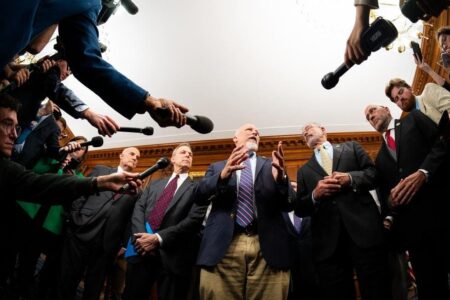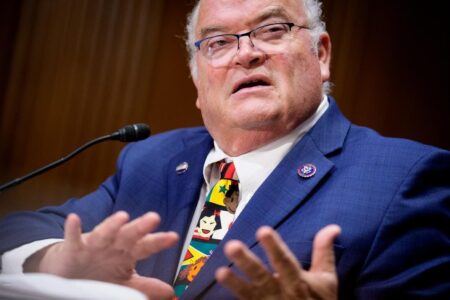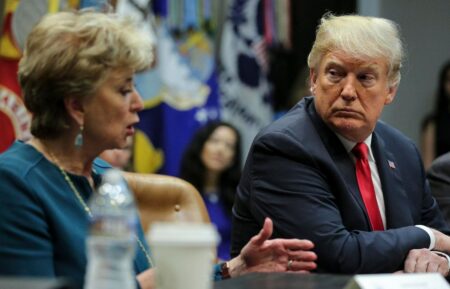Which Borrowers Should Consolidate Their Student Loans?
In a previous Forbes post, I warned that consolidating your federal student loans right now could erase years of hard-earned progress toward student loan forgiveness. For borrowers already on track through Public Service Loan Forgiveness or Income-Driven Repayment, hitting reset at the wrong moment can delay or destroy your debt-free future; however, consolidation isn’t always a mistake. For some borrowers, especially those with older federal loans or who are in default, consolidating may be the only way forward, or at least the best path. The challenge is figuring out which group a student loan borrower falls into.
Borrowers Who Should Likely Consolidate Their Student Loans Right Now
For some student loan borrowers, consolidation is necessary or optimal despite the risks:
FFEL, Perkins, or Older Loan Borrowers: If you have federal loans that are not Direct Loans (such as FFEL Program loans held by commercial lenders, Perkins loans from a school, or older federal loans), consolidation is typically required to access programs like PSLF. These loans aren’t eligible for PSLF unless converted into a Direct Consolidation Loan. For borrowers in this category, consolidation may still be worthwhile; it starts your forgiveness clock, whereas without consolidating, you have no clock.
For instance, an FFEL borrower working in public service cannot earn PSLF credit until they consolidate into Direct. That said, these borrowers should be highly mindful of timing. The Education Department had extended the consolidation deadline for the one-time adjustment to June 30, 2024, specifically to help FFEL borrowers carry over past time in repayment. Post-deadline, if you consolidate now, those past years on FFEL might not count. You’ll be starting fresh toward PSLF or IDR forgiveness. If you’ve already accrued 15 or 20 years on FFEL loans, understand that consolidating in 2025 likely means resetting your timeline, an unfortunate reality if the special adjustment relief wasn’t secured before the deadline.
Defaulted Loan Borrowers: Given the sharp rise in student loan delinquencies, borrower default may be forthcoming for millions. Borrowers who default might use consolidation to get out of default and back into good standing. If you’re rehabilitating your loans or consolidating to exit default, the priority is to resolve the default status – since in default, you can’t make qualifying payments anyway. For these borrowers, there’s little to lose regarding forgiveness counts (months in default don’t count toward IDR or PSLF). The sooner you get out of default and into a qualifying repayment plan, the better, as you can work to reverse a decrease in your credit score and ward off wage garnishment or Social Security offsets. Just be aware that consolidating will wipe away any prior qualifying payments you made before default. It may be a necessary trade-off to restart the journey.
Borrowers Who Should Likely Avoid Consolidating Their Student Loans
On the other hand, many borrowers should think twice and perhaps hold off on consolidating right now:
Direct Loan Borrowers with Progress Toward Forgiveness: If all your loans are already Direct and you’ve been making qualifying payments toward PSLF or IDR forgiveness, you typically don’t need to consolidate. For example, borrowers who previously consolidated during the pandemic payment pause to take advantage of the IDR waiver already have their loans in the right status. Consolidating again to simplify or change servicers could be detrimental. Until the legal cloud lifts, it behooves most borrowers to avoid any unnecessary consolidation that would restart their count. This is especially true if you are only a couple of years away from reaching 120 PSLF payments or hitting that 20- or 25-year IDR mark. Let those clocks run out and claim forgiveness rather than resetting the clock.
SAVE Plan Enrollees: Borrowers who planned to benefit from the SAVE plan’s more generous terms might consider consolidation to join SAVE (for instance, consolidating Parent PLUS loans, which are ineligible for SAVE, into a new loan that could access a different plan). However, given the injunction on SAVE, now is not the time to consolidate solely to get into that plan. The SAVE plan’s future is highly uncertain pending court outcomes. Also, consolidating Parent PLUS loans only makes them eligible for the older ICR plan (or the contested SAVE, if it returns), and you’d lose any credit for time already spent in repayment. Until there’s clarity on SAVE, consider holding off major moves like this unless necessary.
Borrowers Looking to Merge Loans for Convenience: Some borrowers consider consolidation to merge multiple loans into one for ease of a single payment or potentially to switch servicers. In 2025, that convenience isn’t worth the cost if you’ve made any progress toward forgiveness. Consider consolidation as pressing a reset button on your repayment journey; it’s likely not worth it to streamline billing, especially when servicers can often link accounts or when autopay can handle multiple payments. The potential loss of tens of thousands of dollars in forgiven debt (by extending your repayment term further) far outweighs minor convenience factors.
The Upshot On Consolidating Student Loans For Those Aiming For Student Loan Forgiveness
The upshot for student loan borrowers is that they assess which of the above categories they fall into before consolidating their student loans. Consolidation is not inherently bad, but it’s also not neutral. In today’s chaotic student loan landscape, and given the tremendous uncertainty hanging over the Education Department, the SAVE plan, PSLF eligibility, and myriad other factors, consolidation may be your best or only path forward; but it could also be your most significant setback.
Simply put, if you have defaulted on student loans or hold older FFEL loans, consolidation may be the only way to regain eligibility. If you’re close to forgiveness or enrolled in a qualified plan, consolidation could wipe out everything you’ve earned.
Before consolidating in the near future, ask yourself the following questions:
- Are your loans already Direct?
- Have you been earning forgiveness credit, and for how long?
- Are you near the PSLF 120-payment mark or IDR’s 20-25-year threshold?
- Do you need to consolidate for program access or just for convenience?
The coming months may bring more clarity around the landscape for student loans. For many, it may be worth waiting until there is more concrete detail about what student loan borrowers are trading off for consolidation.
Read the full article here
















